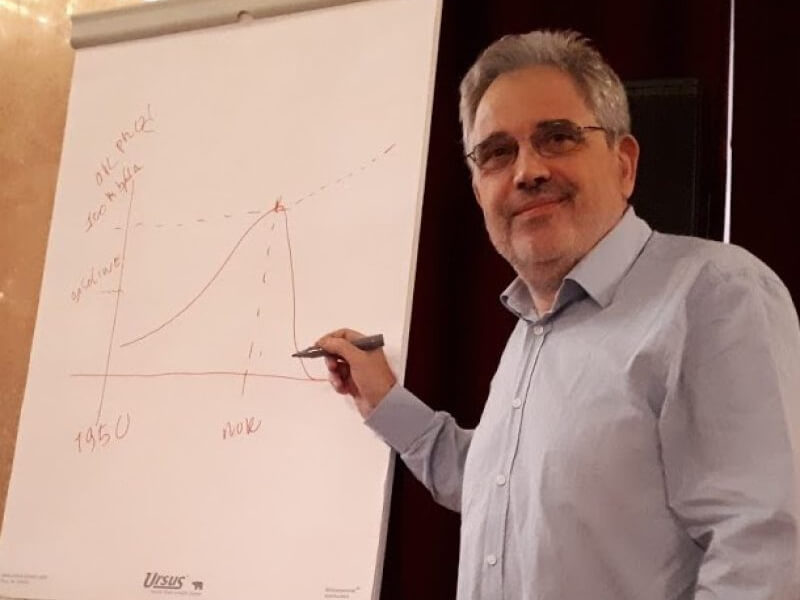22 June 2023 – In our first instalment of the Q&A series with authors of the Limits and Beyond, we talked to Ugo Bardi, the co-editor of the book, a member of the Club of Rome and a professor at the University of Florence. Bardi touches on the legacy of The Limits to Growth and offers us hope on redefining collapse as adaptation while navigating the challenges ahead.
In your chapter in Limits and Beyond, you talk about the cycle of growth and collapse of civilizations. Do you think that collapse is inevitable?
Change is inevitable. That’s something that you learn from studying history and making models. But collapse is not a destination, it is a process, part of the normal oscillations of the universe.
What is the Tragedy of the Commons and how does it relate to the current planetary crisis?
Biological and economic systems evolve by going through oscillations until they find a condition that we call homeostasis. The Tragedy of the Commons means that in order to find this state, you must pass through a phase where you overexploit the resources you have. If you are a carnivore, you hunt too much, if you are a shepherd, you have more sheep than your pasture can feed. You go through a period of growth, you destroy your prey or your grass, and then you grow again. And that’s what our models tell us about the economy. The Limits to Growth shows the first cycle of this oscillation, but there will be more cycles in the future.
The Club of Rome was founded in 1968 and The Limits to Growth was published soon after. What was it at this time that made people want to think more deeply about the future of humanity?
In the 1960s, a chain of ideas emerged: we were growing very fast, but where was it all going? From this, the idea of creating the first mathematical models was born. They could tell us something that was already obvious: that we cannot grow forever. The models told us that the world would follow a certain trajectory, and in this case, the models were successful in telling us that we would find ourselves in trouble during the first two or three decades of the 21st century. We are in trouble now; we see that the system is unable to keep growing.
Why was The Limits to Growth initially rejected?
This is normal in science, just like it took some time for people to come around to the idea that the Earth is round. It was the same with The Limits to Growth. In the 80s and 90s people discarded the idea that we would have limits. There was a period of interest in The Limits to Growth, a period of loss of interest, and now it is returning. These ideas about the world go through oscillations, just as everything else—it is part of how the universe works.
Can you reflect on the role of technology? Many people believe that with it, we can overcome limitations.
We have been struggling with technology for the past 100-200 years; I think that we’re only starting to learn what technology is now. This was a weak point of The Limits to Growth because it contained only two kinds of technologies: that you grow fast, or you decline fast. I think there is a middle way, a way that technology can lead you to stability. I think it is possible to include this in models, which will give us some idea of where we are going.
The collapse of the world economy has become a real possibility today. Is there still hope?
We don’t want to avoid collapse; we want to redefine it. We can say it is not collapse, but adaptation. If we manage the next decades well enough, we will be able to adapt without suffering too much. We are now in overshoot, consuming much more resources than the system can resupply. This needs to be corrected. I am optimistic, I think we will learn to do that. There’s no doom, there is no infinite growth, there is just the laborious, difficult, and sometimes painful attempt to arrive to an equilibrium of reasonable maintenance of human life on this planet. Maybe it will be painful, but if we do it without always searching for someone to blame, we can succeed. It is nobody’s fault. It is our lot to grow, change, learn and adapt.
Limits and Beyond is a collection of essays from world-renowned thinkers, scientists, and economists from across the globe, grappling with the most acute issues of our time. Published on the 50th anniversary of The Limits to Growth, it explores what we learnt and where do we go from here.
Find out more and order the book





